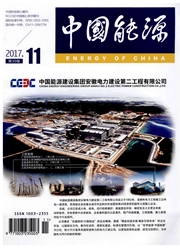

 中文摘要:
中文摘要:
不同区域的能源消费特征会对环境造成不同影响,因此将区域环境污染和区域能源消费联系起来研究具有重要意义。本文基于全国31个省市自治区和全国平均水平的每单位GDP废水、废气、废固排放量和人均废水、废气、废固排放量,通过系统聚类与k-值聚类两种聚类分析方法对其进行基于环境污染数据的集群分类。然后利用面板模型,将各区域煤炭、焦炭、原油、燃料油、汽油、煤油、柴油和天然气的消费特征函数分为变系数模型和变截距模型,并测算不同组别各类能源的消费平均水平和消费倾向。研究表明:虽然污染程度变化滞后于能源消费倾向变化,但能源消费倾向变化可能会引起污染程度变化;消费倾向与环境污染程度呈负相关;地区能源消费特征与其产业结构、资源富裕程度有关。最后,基于能源消费特征分析结论,提出一些协同节能环保的政策思路。
 英文摘要:
英文摘要:
Different features of energy consumption have different effect on the environment. Therefore, it is very meaningful to do research by associating environmental pollution with energy consumption. Based on the amount of waste water, waste gas and solid waste emissions per unit of gross domestic product as well as the amount per person, this paper categorizes the 31 provinces and districts nationwide in terms of their environmental pollution by doing system cluster analysis and k-mean cluster analysis. It uses the panel model and divides the consumption function featuring coal, coke, crude oil, fuel oil, gasoline, kerosene, diesel oil and natural gas of all areas into the variable intercept and the variable coefficient model. It calculates energy consumption average level and energy consumption tendency. The empirical research shows: the change in degree of pollution lag behind that in the tendency for energy consumption and change in the latter will cause that in the former; the tendency of total energy consumption is generally negatively correlated with the degree of environmental pollution in specific categories. The characteristics of energy consumption have something to do with its industry structure and resource level. Finally, based on the analysis, the paper gives some collaborative energy conservation and environmental protection policy suggestion.
 同期刊论文项目
同期刊论文项目
 同项目期刊论文
同项目期刊论文
 期刊信息
期刊信息
